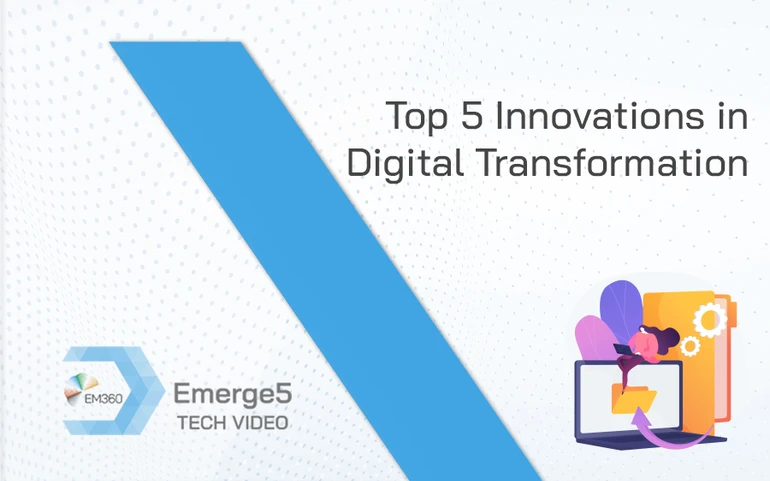
2020 turned out to be a catalyst for the evolution of many technologies in the business enterprise sector. Cybersecurity, data storage and even CRM systems morphed into state-of-the-art versions of their past selves as a result of the digital transformation. In fact, according to a Gartner report, 70% of businesses chose to increase or maintain digital transformation during the pandemic.
2021 has proved to be no different as digital transformation has pushed forward new eco-friendly technologies in the business enterprise sector as well as more power efficient tools to help with logistics.
Cloud Computing and 5G Networking
Led by AWS, Google Cloud, IBM and Microsoft Azure, networking infrastructure has been transformed by cloud computing. Businesses and organisations are tapping into public cloud networks as well as private clouds and hybrid data infrastructure that combines with physical data centres. This has allowed more organisations to scale their data infrastructure whilst taking advantage of sophisticated security and wireless integrations.
Hybrid and Private Clouds
While public clouds are shared resources with multiple users or tenants, private clouds provide more secure internal networking solutions. Hybrid clouds combine the scalability of public clouds with closed private cloud systems. This offers companies a means to internalise their data needs for the sake of regulation and security, all whilst retaining the near-infinite scalability granted by the public cloud.
5G in the Mainstream
Controversies surrounding Huawei’s 5G technology in the UK and US delayed the 5G rollout significantly in 2020, with some reports suggesting losses of £18.2 billion. The 5G rollout will continue in 2021 as users in most of Europe, the UK and the US begin to pick up 5G signals on compatible devices.
Ultra-fast wireless internet connections will fuel our mobile-first behaviour, placing even greater emphasis on mobile apps, mobile-compatible software and mobile-browsing. Businesses will also be able to access flexible 5G packages as a back-up or even as their main networking technology. In short, 5G will make borderless, ultra-fast networking easier than ever.
Advances in Cybersecurity
Across the coronavirus pandemic, hackers and cybersecurity platforms were locked in an arms race as financial crime and fraud skyrocketed. Cyberattacks no longer exclusively target the world’s largest businesses, as Computer Weekly found that some half of all UK businesses suffered cyberattacks in 2020.
Innovations in anomaly detection are fighting this new influx of modern fraud.
AI-Driven Fraud-Detection
This has increased the importance of fraud-detection software that implements AI-driven anomaly detection and sophisticated time-sequence analysis algorithms.
Data analytics platforms such as Avora provide scalable, advanced anomaly detection that can be rolled out across business networks. SaaS AI-powered fraud detection software will bring businesses of all shapes and sizes in-line with the cutting-edge of cybersecurity.
Non-Graphical UI
As technology such as Amazon Alexa and Google Assistant proliferates, technology is losing touch with traditional graphical interfaces. This will enable people to make buying decisions without interacting directly with the software front-end. For example, this could involve requesting Amazon Alexa to order your groceries without ever visiting the Amazon store yourself.
Information can be requested directly from these technologies - no physical interaction with a graphical interface is required.
Quantum Computing
Quantum computing is nearing a commercial breakthrough with Google claiming that they’d gained the ‘quantum advantage’ over competitors in 2020. Quantum computing will enable the modelling, optimisation and implementation of data on massive scale.
Once confined to experimentation and academic exercise, quantum computers are gradually seeing some level of use in commercial settings. Barclays announced that they were experimenting with quantum computing some time ago, while ExxonMobile has experimented with IBM quantum technology in the energy sector, and Volkswagen with D-Wave.
Quantum computing will provide the computing power that new-gen AI needs to thrive at scale.
Quantum Cloud Computing
Once quantum computing rolls out on a widespread commercial level, quantum cloud solutions will invoke quantum technology wirelessly through the cloud.
IBM’s Quantum Network already provides some level of quantum-powered cloud computing solutions that have enabled businesses such as JP Morgan Chase, Boeing and the University of Oxford to tap into new-gen data solutions.
Green and Sustainable Energy
Beneath some of the world’s most power-hungry technologies is a new generation of hyper-efficient green and sustainable energy sources. Both Facebook and Google have announced plans to become net-zero for carbon emissions over their entire company lifetimes by investing in high-quality carbon offset programmes.
Google became the largest commercial buyer of renewable technology in the world in 2020, moving many of its data centres onto wholly renewable sources.
Green and renewable energy innovations range from highly-efficient solar panels to off-shore floating wind power and tidal energy. Battery technology is also fast-developing, allowing large amounts of renewable energy to be stored and distributed efficiently around national networks.

